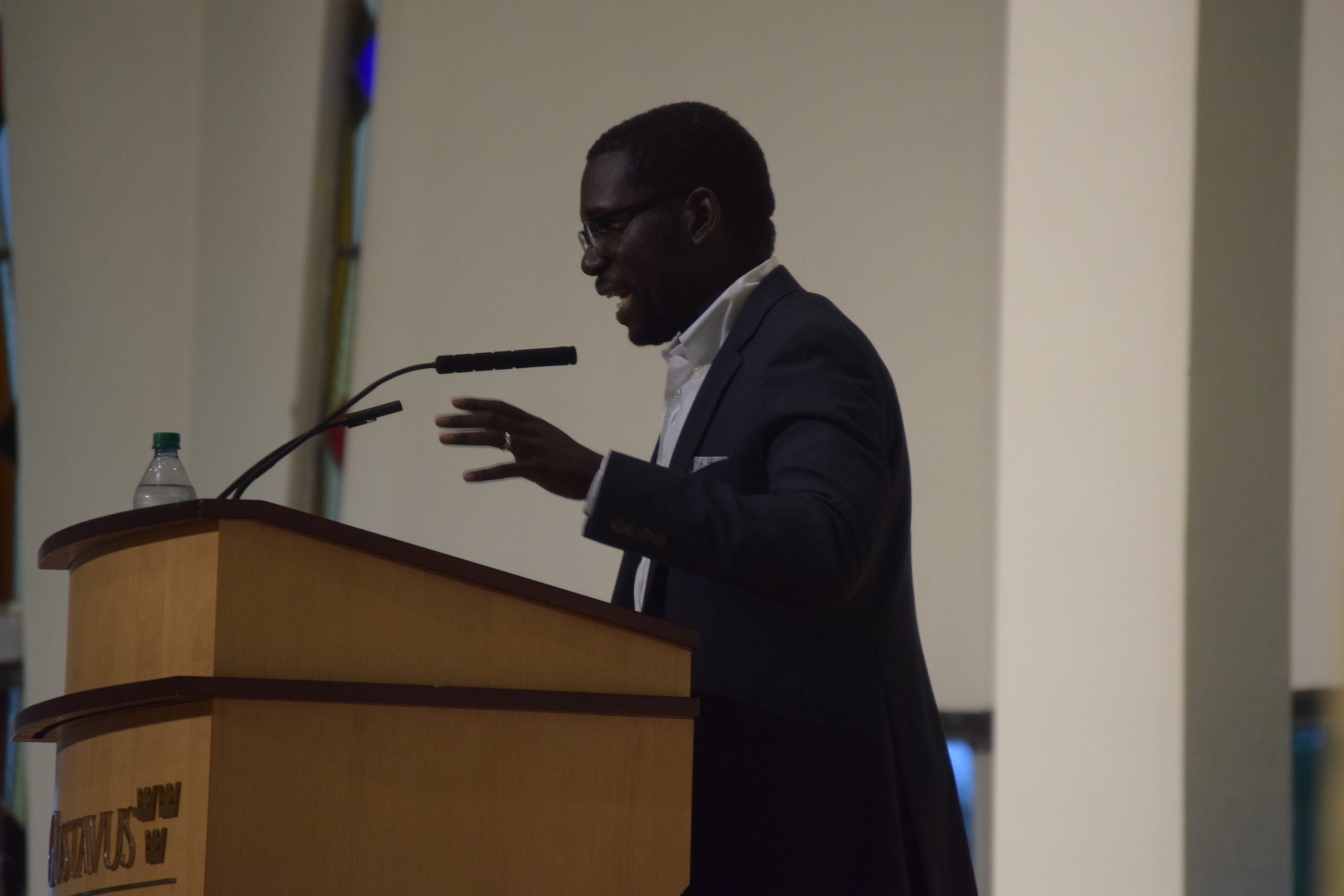This year’s Reading in Common book, “Between the World and Me” brought speaker Jamelle Bouie to campus. As a political analyst by trade, Bouie chose to address issues of race and systemic racism through the decisions from policy makers and legislation that promote and foster the intolerant and color coded mind set of many Americans today.
“To acknowledge these horrors means turning away from the brightly rendered vision of your country as it has always declared itself and turning toward something murkier and unknown” – Ta-Nehisi Coates
Bouie explains how racist legislation began limiting individuals of color from (good) communities and housing options, denied them the resources to improve the community’s conditions limiting employment opportunities and beginning the cycle of systematic oppression.
Bouie further illustrated his point by quoting former United States President Linden B Johnson.
“What white Americans have never fully understood but what the black communities can never forget is that white society is deeply implicated in the ghetto,” Bouie said.
Still Bouie emphasized that racism and systematic oppression where not issues created by policy alone.
“This climate is created by ordinary choices of a world that deliberately oppresses a group of individuals,” Bouie said.
America is a democracy, thus governed by politicians whom reflect the American majority’s attitudes in the nation’s political movement. Bouie points to the fact that a majority of American interests are white, leaving the answers to problems of systemic oppression and racism to white people who want to see change.
“These were not natural disasters that we have no control of,” Bouie said.
Senior Esrea Perez talked about her struggle with coming to Gustavus’s campus and being exposed to the complete whiteness of the community. She says that during her time at Gustavus she has chosen to disrupt and challenge the white feeling on campus.
“The moment whiteness becomes comfortable is the moment you don’t seek to change it,” said Perez.
Bouie suggests that to see change, the white population must first take stock of what it truly means to be white and mitigate those privileges to create a more equitable society. A problem, however, lies within the population that believes the status quo is ok and does not want it to change.
“How can we as a white majority Gustavus make our community more open to all people,” First-Year Maggie Leininger asked Bouie during the question and answer portion of the event.
Bouie’s answer was simple, though he acknowledged the complexity of the question at hand, you have to respect each other and learn to see people as people.
Leininger appreciated the openness, and direct approach Bouie was able to address the topic with, in contrast to her greeter group’s discussion of the book which was led by a white professor. During the discussion she felt like there was a barrier, as if her group tip-toed around what needed to be said.
“I hope that this is the first step to normalizing that conversation,” said Director of Campus Activities Andrea Junso.
Junso is confident that the community can continue the conversation and is proud of the Gustavus community for their overwhelmingly positive reaction.
